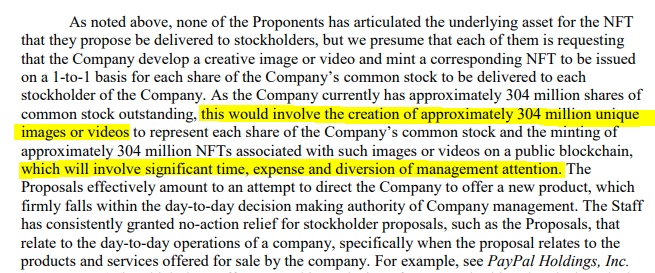Dividend NFTs are a new buzzword on the internet as it promises to blend securities and blockchain technology into one. SEC (Security and Exchange Commission) is still scrutinizing the idea as the legal framework is still trying to catch up with the technology. There are multiple companies proposing to issue their stocks dividends as NFTs.
What are Dividend NFTs?
Profitable companies share their profits with their shareholders as dividends. Likewise, dividend issuing NFTs are non-fungible tokens (NFT) that represent a dividend payment from a company to its shareholders.
SEC categorizes these NFTs as security. By definition, any asset should meet the following criteria to be categorized as security:
- It must be an investment of money.
- It must be in a common enterprise.
- It must be of a type that is sold with the expectation of profits to be derived from the efforts of others.
Since Dividend NFTs fulfill all 3 conditions, they are termed as security so these NFTs would be subject to the same regulations as traditional securities. These regulations include requirements for disclosure, registration, and anti-fraud.
How do Dividend NFTs work?
There are certain things that are determined differently by each company like when to pay a dividend, what should be its value, and how it compares to the stock value. Some companies even involve the idea of the warrant to mature the distribution. A warrant is a type of derivative that gives the holder the right, but not the obligation, to buy or sell a security—most commonly an equity—at a certain price before the expiration.
Dividend NFTs are distributed in 3 steps generally:
- A company mints NFTs on blockchain to issue them to the shareholders in lieu of a cash dividend.
- The company decides the value of shares as compared to NFTs and issues warrants to the shareholders.
- Shareholders can execute those warrants in the given time to claim their NFTs and then use those NFTs as they see fit.
GameStop Dividend Issuing NFTs:
GameStop, one of the biggest retail gaming companies, wrote a letter to SEC about issuing Dividend NFTs. The letter included proposals by the shareholders to receive dividends as NFTs.
As a shareholder in this company, I am writing to propose that the company and/or its
board of directors take action to issue a -NFT- tokenized dividend for each share held
(1:1) to its shareholders.
This is a life-giving step for NFTs that will bring in new utilities and might even revive forgotten projects. However, the letter itself questions the viability of the idea.
GameStop states that the company has 304 million shares at the moment. Creating NFTs on a 1:1 basis to share would require significant resources. Not only this, the internet community is also curious about the idea and drops many unanswered questions.
(1) A friend of mine really got me thinking about GameStop NFTs. If they are giving out the dividend then how many NFTs are made? What happens when the number of shares is less than the number of NFTs? Does GameStop give out more or less NFTs at that point?
— 🐼Korupted🧸 (@airspud21) October 17, 2021
Conclusion:
The concept of dividend-issuing NFT is still new and may be perplexing. However, it is based on a solid foundation and has the potential to bridge the gap between traditional finance and blockchain-based products as it matures.
Disclaimer: This article is provided for informational purposes only. It is not offered or intended to be used as legal, tax, investment, financial, or other advice.







